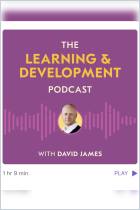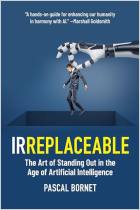
Recommendation
A lot of fear and hype surrounds the topic of AI models like ChatGPT. How, and to what degree, should people embrace these tools? In this episode of the Fast Company Podcast, host Kathleen Davis chats with AI expert Tomas Chamorro-Premuzic about AI’s effects on the future of work, and society in general. He shares his experienced insights into what AI can do to streamline productivity and enhance creativity, while also warning of its pitfalls. In order to thrive with AI, Chamorro-Premuzic argues, people need to focus on upskilling the traits that make them uniquely human.
Summary
About the Podcast
Podcast host Kathleen Davis is a deputy editor at Fast Company. Dr. Tomas Chamorro-Premuzic is the chief innovation officer at Manpower Group, co-founder of Deeper Signals and Metaprofiling, and professor of business psychology at both University College London and Columbia University.














Comment on this summary